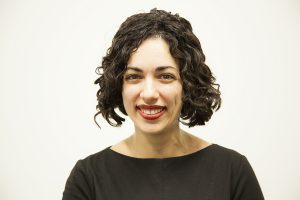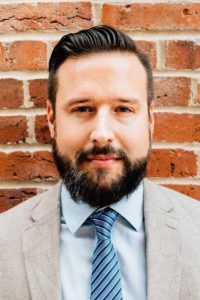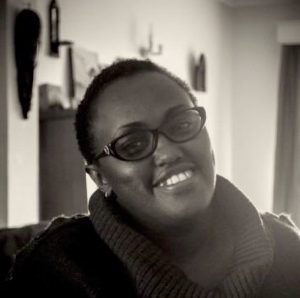GPP Webinar
Strategies for Sustaining LGBTI Movements in Closing/Closed Space Countries
March 15th, 2017
10-11:00am EDT / 2-3pm GMT / 3-4pm CET / 5-6pm EAT
Note: Time change to EDT in US changes relationship to other time zones this week.

GPP Webinar
Strategies for Sustaining LGBTI Movements in Closing/Closed Space Countries
March 15th, 2017
10-11:00am EDT / 2-3pm GMT / 3-4pm CET / 5-6pm EAT
Note: Time change to EDT in US changes relationship to other time zones this week.
This webinar is intended for grantmakers only.
As part of the global phenomenon of closing space, we witness increased repression of civil societies and democratic spaces, manifesting in a wide range of trends from the rise of right-wing extremism to increased surveillance on NGOs, from restrictions on registration and banking to criminalization of fundraising. Social change and human rights movements are struggling to sustain their efforts and increase their impact, and in many cases funders are struggling to find ways to support them. These restrictions are provoking shifts in movement dynamics, sometimes compromising the autonomy of groups as they restructure in search of the means to receive funding. The same restrictions prevent foundations from maintaining their grantmaking programs and financial support to civil societies and donors are sometimes forced to withdraw their activities completely. In this context, intermediary/public foundations have largely managed to stay under the radar and employ various flexible and creative tools to sustain their funding to civil society organizations in countries with closed/closing spaces. This webinar will share examples of practical strategies used by some of these foundations to steadily move money in most restricted environments enabling the groundbreaking human rights and social change work to carry on.
In the most concrete of ways, how can funders move money into difficult places such as Russia, China, India, Mexico, Azerbaijan, Uzbekistan, Belarus, Egypt and other countries with similar legal restrictions? This webinar will explore the practical tools that public/intermediary foundations use to move money into closing/closed space countries and how the changing formations of civil society funding are affecting dynamics and leadership within civil society itself. The webinar will create space for different types of funders to learn from each other, exchange strategies and think of creative ways for reaching human rights and social change actors in countries with closing/closed civil society spaces.
Deborah Doane is Director of the Funder’s Initiative for Civil Society, at Global Dialogue. She has over 20 years of experience in the NGO and campaigning sector, most recently as a consultant and writer. Previously, Deborah was Director of the World Development Movement from 2009 – 2013, where she led a winning campaign to end financial speculation in food commodities. Other roles have included as Head of Sustainable Consumption for WWF-UK, and director of the CORE Coalition of over 130 NGOs, which achieved groundbreaking changes to UK Company Law to improve governance of social and environmental impacts. She also worked at the New Economics Foundation as head of corporate accountability and at the British Red Cross, helping to establish an international accountability mechanism for humanitarian aid.
Deborah is a Trustee of Finance Uncovered. Previously, she was a Trustee of the Fairtrade Foundation, an advisor to Amnesty Business Group on business and human rights and was a member of the Institute of Chartered Accountants of England and Wales (ICAEW) corporate responsibility advisory board. Deborah holds a Masters degree in Economics (Development Studies) from the London School of Economics, and a BA (Hons) from Carleton University in Canada. She lectures and speaks regularly, and blogs for the Guardian on civil society and development issues.


As Vice President for Programs for the Fund for Global Human Rights, David Mattingly is responsible for oversight, coordination, and integration of human rights grant-making in six regions around the world. Since joining the Fund in 2005, David has managed grants programs for frontline groups based in Latin America, North Africa, and West Africa; coordinated an initiative to strengthen the capacity of Mexican activists to promote public policies that expand human rights protections; and developed the Fund’s grant-making strategy to challenge rights abuses related to sexual orientation and gender identity and expression. After earning a BA in International Development from American University, David monitored the human rights situation in indigenous communities in Chiapas, Mexico. Prior to joining the Fund, David worked at the Moriah Fund, where he helped manage grant-making programs promoting indigenous rights in Guatemala, environmental justice, and women’s rights and reproductive health. David serves as the Chair of the Board of Trustees of the Center for International Environmental Law (CIEL).

Wanja Muguongo is a queer African feminist, social justice activist and movement builder. She is the founding Executive Director of UHAI EASHRI, Africa’s first indigenous activist led fund supporting lesbian, gay, bisexual, trans and intersex (LGBTI) and sex worker activism in Eastern Africa with flexible and accessible funding, capacity support, research and platforms of learning. Wanja is passionate about work that promotes social justice, equality, non-discrimination and a respect for human rights. Wanja has worked within East African civil society, and in India and Pakistan, has edited and collaborated on various publications and papers, and is a Yale World Fellow 2012 and Synergos Senior Fellow 2014.

Presenter Resources
Additional Resources